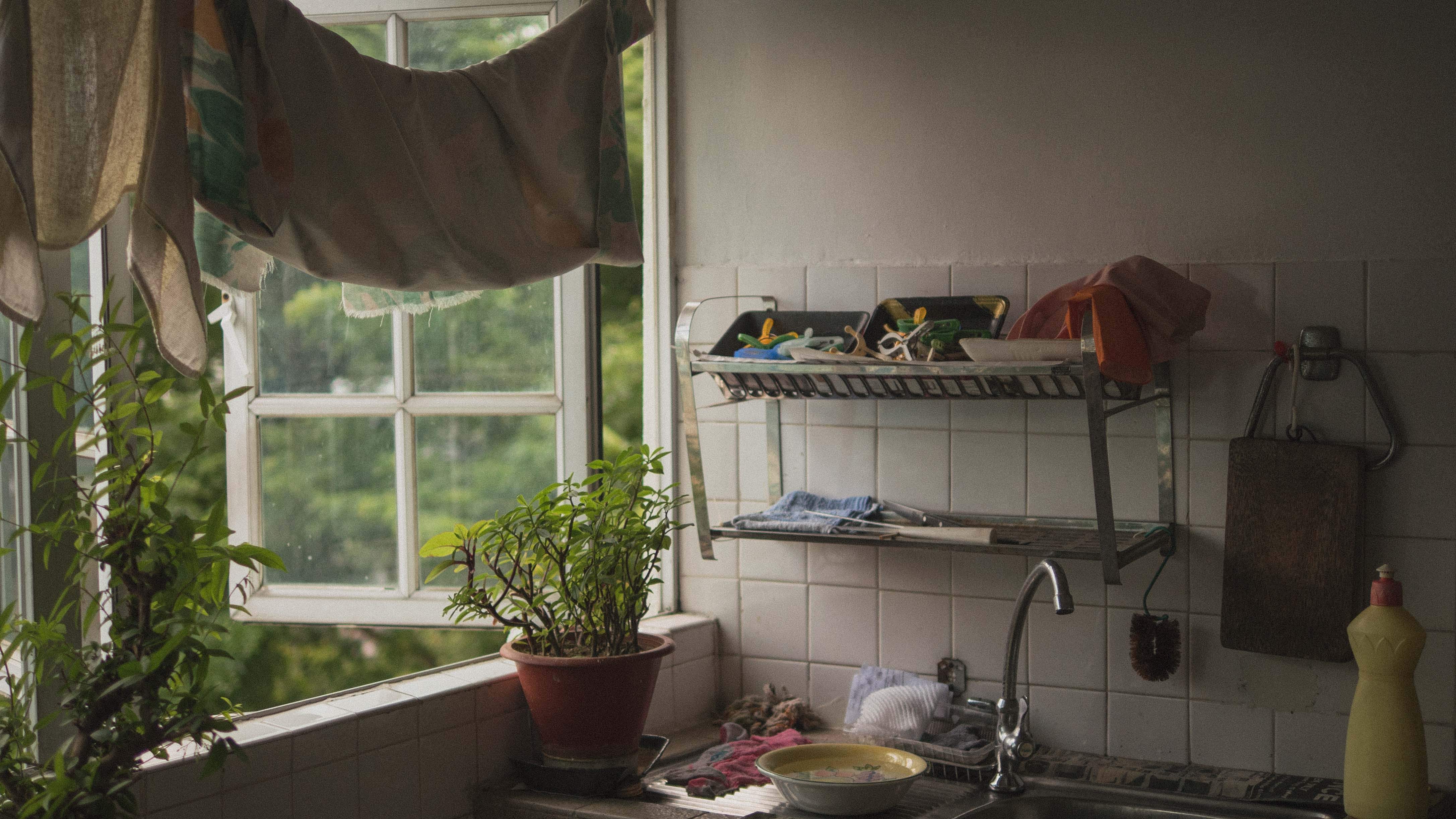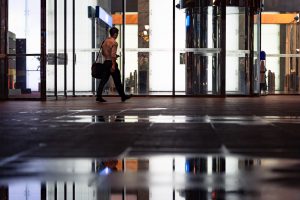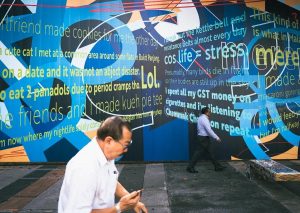Top image: Zachary Tang / Rice File Photo
Lockdown and the Covid-19 pandemic in general has created serious problems for society. Many have lost jobs, while others grapple with numerous uncertainties. At the same time, the circuit breaker has been for many an opportunity to learn about ourselves, time management, and health.
Case in point: me.
I fucking loved the circuit breaker.
Amidst the chaos, worry, and uncertainty of lockdown, I found it exhilarating to live a life free of traditional routines as we knew them. My weekends were mine to use and abuse. There were no social obligations keeping me from getting into artmaking for entire weekends. Not commuting meant sleeping that extra hour every morning. And yoga, meditation and journaling finally became a part of my routine after years of false promises to myself.
Would I want to do it again? Most certainly not. But it was a pivotal moment in history and in our lives, yet barely anyone speaks about it anymore. But we need to, because Covid-19 remains a health risk across the globe, and it’s keeping us from returning to a normal pace of life anytime soon.
So as we ease out of this pandemic, we now have an opportunity to learn from these turbulent times, to build a future more suited to our needs.
But is anyone else still thinking about the circuit breaker? Or have we all, as we suspected, begun transitioning back into life as we knew it, as though the pandemic never happened?
A survey we ran with Milieu actually shows that I’m not alone. Many Singaporeans miss their time in lockdown.
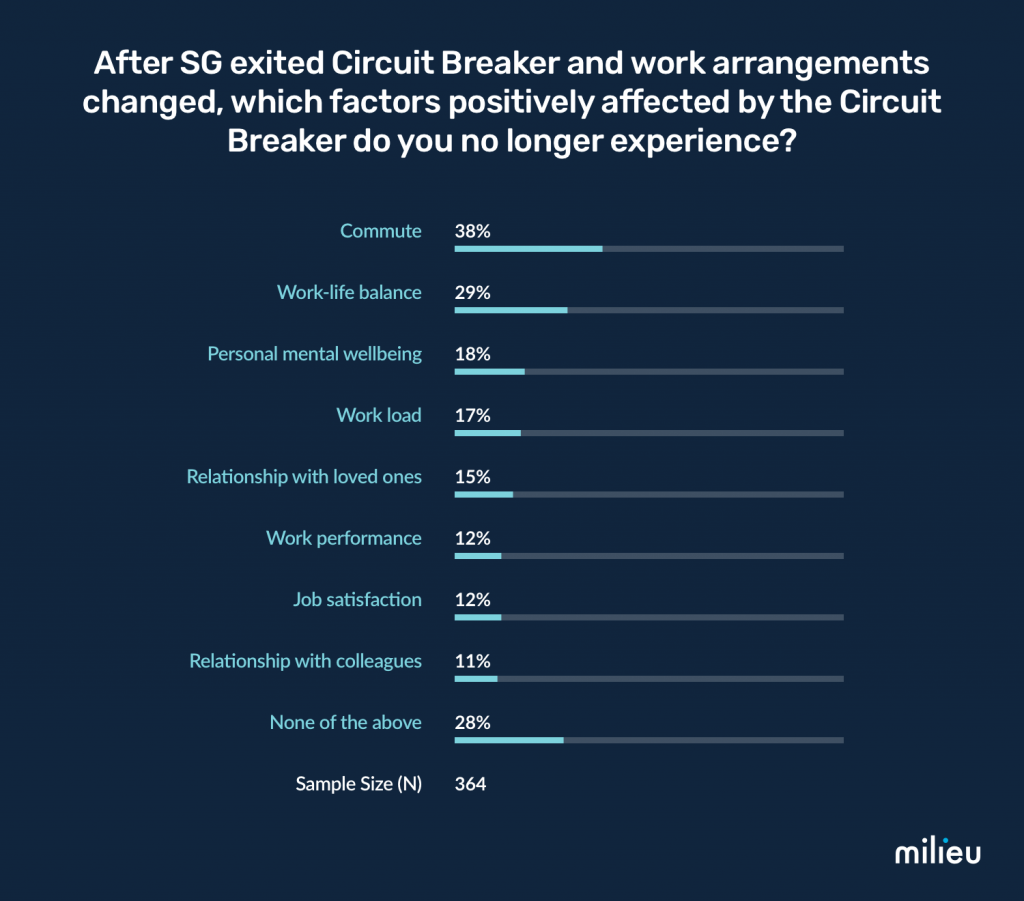
I spoke about this with my friend Julian, who told me why he liked his routine during lockdown.
“I loved that it forced me to cut out things like my commute, which as we know, is never really just about the commute,” he said.
“Because you need to wake up earlier and get ready, all of which are things that take time, but miraculously evaporate when you work from home. The extra time made it possible to do many other things like cooking my own meals, getting more time to decompress, and it allowed me to re-establish a bit more of a balance between work and life.”
“Now, at the end of a work day, I just throw on exercise clothes and go for a run. I would never do that if I had to throw a commute into the mix.”
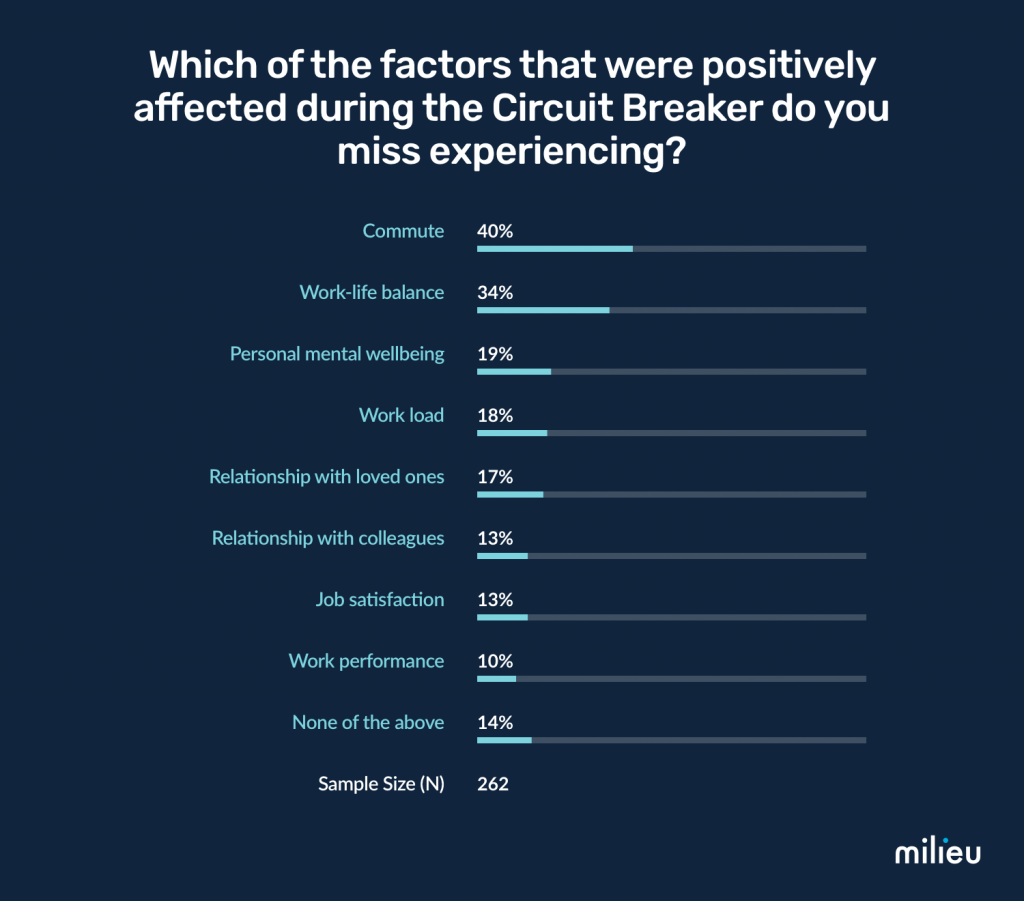
Another insight the survey provided is how participants felt about their social lives. I expected to find that most individuals were ecstatic about being able to meet their friends and acquaintances again, but the survey results revealed otherwise.
41% said they only missed it a little, and 21% responded that they hardly missed it.
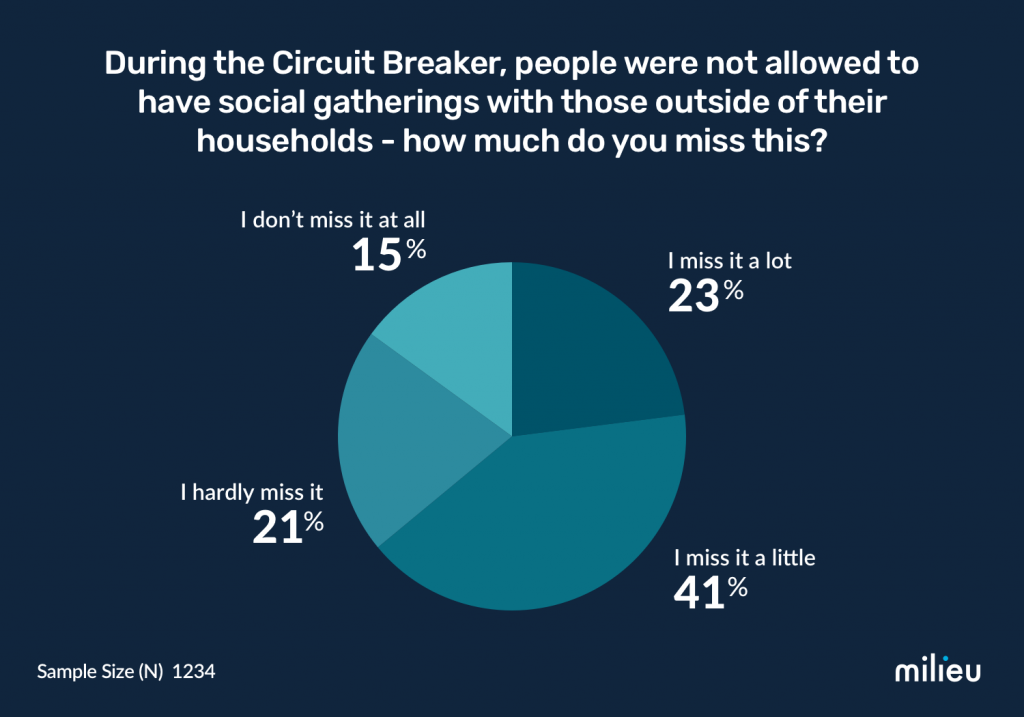
Less socialising means more time for ourselves and our families (with whom we stayed home during the circuit breaker), and this is the primary reason why participants might have enjoyed this period. But the reasons are also practical and financial—49% said it had to do with saving money, and 44% said they enjoyed not feeling pressured to go out.
After months of living with the extra headspace and reduced costs of going out, it isn’t easy to shift back into normality—especially if you have a busy schedule. From working, commuting, exercising, meeting friends, and attending to family, it may feel like there’s never enough time to be still.
And while I’m inclined to say that Singapore is a city of hustlers (based entirely off my personal assumptions), these results show that the circuit breaker may have given people a new affinity with alone time.
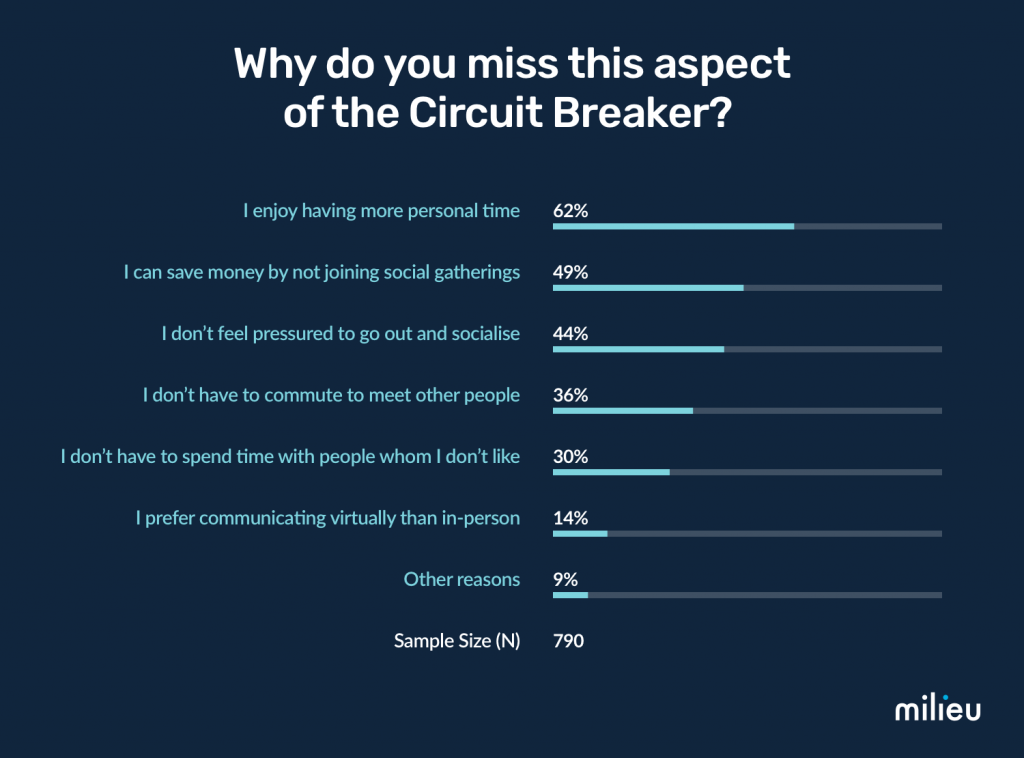
What these results show is that looking back at the circuit breaker isn’t about merely missing having more time to sleep in or chilling on your couch, but it’s a reflection of what we learned and what we’re changing in our life now.
From mental health to work-life balance, many of us didn’t realise how out of tune we were with our needs. Hopefully, we don’t jump back into pre-lockdown life as we knew it, and rather look to building a new normal in our personal life as well, whether in the form of structural changes to our routine or adopting new habits.
If these survey results are anything to go by, many Singaporeans are hankering for a slower pace of life (35%), want to engage in self-care (23%) and want time to pursue their hobbies (21%).
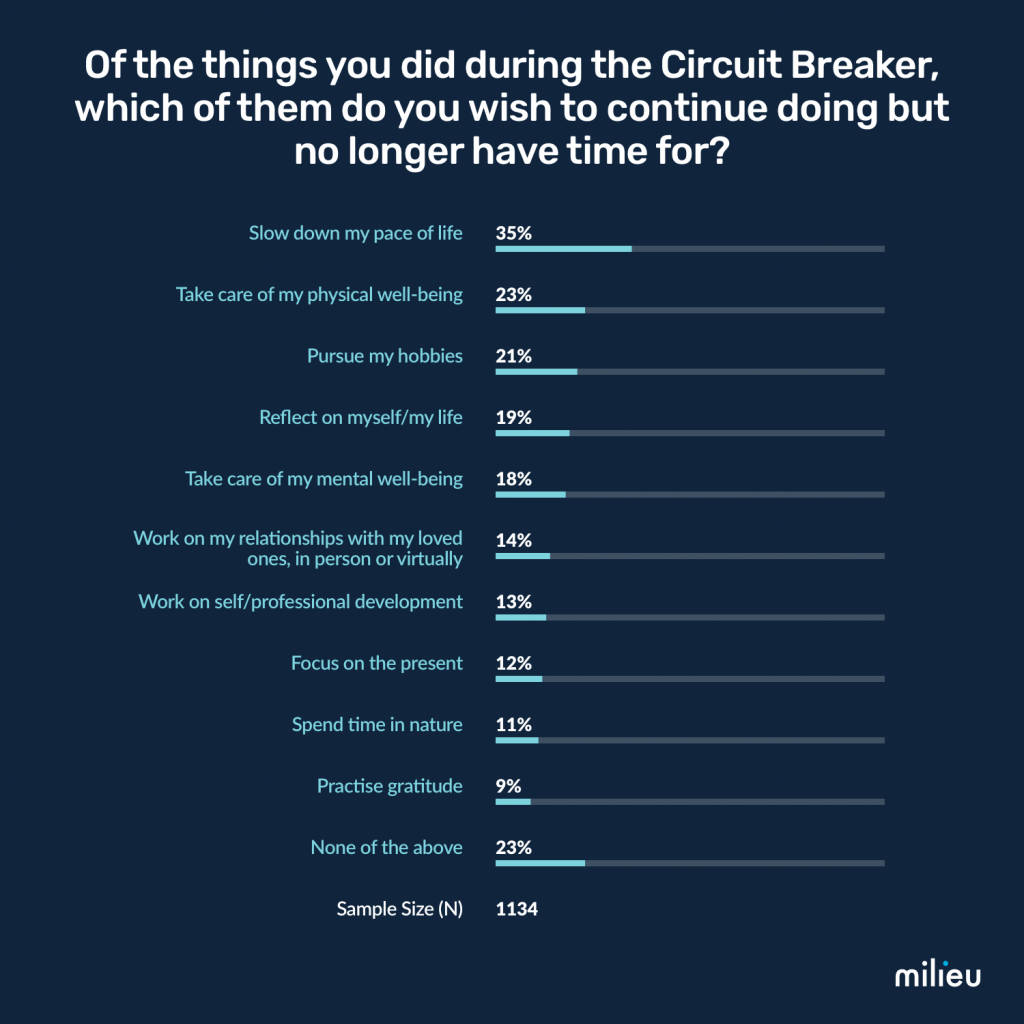
The biggest lesson Julian learned after lockdown was “how big a role your environment plays when it comes to your personal well-being.”
Beyond that, he has looked at reshaping his work-from-home routine, and more importantly, the way he handles his relationships. “It’s so important to make an effort when it comes to maintaining relationships, whether with colleagues or my wife,” he said. “If you don’t communicate, don’t expect anyone to understand what you think or feel, that’s just the way it is.”
“I also learned how much I actually enjoy not-working, and how having time to myself actually helps me work better.”
Relatable? I think so.
Did you enjoy the circuit breaker? Tell us at community@ricemedia.co.

